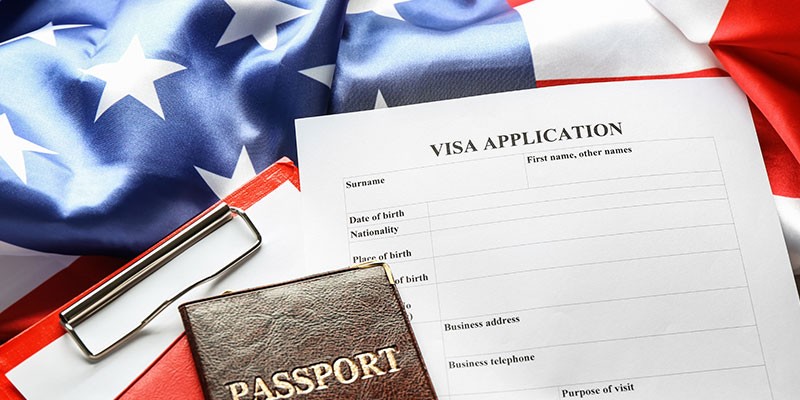
In this blog, we have discussed the
While going through the differences between H1 and F1 visa, it might also be interesting to take a look at the differences between H1 and L1 visa.
Are you seeking an H1B visa or an F1 visa? Since H1B and the F1 visa are non-immigrant visas, it is common for applicants to get confused with both. The H1B visa is issued under the Immigration and Nationality Act, allowing foreign employees to work temporarily under US employers. This is where the F1 visa differs from H1B. F1 allows non-immigrants to pursue their education in the US.
However, the differences do not end here. There are more differences that we've explored in this article. Let's get down to the details of F1 vs. H1B visa.
| Features | H1B | F1 |
|---|---|---|
| Skillsets and the permission to work | To work in a specialty occupation under the H1B visa, foreign employees need to have a bachelor's or a master's degree or its equivalent. They also need the skills, expertise, experience, and knowledge required for the job. | F1 visas are education-based visas, and cannot be used to obtain a job in the US. However, students can obtain prior permission from the Department of Homeland Security and your school’s International Office to work for around 20 hours per week on campus during an active school session. They can also work full-time during recess with the same permission. Additionally having an OPT or CPT also allows F1 holders to work in the US. |
| Visa Nomenclature | The visa for employment is known as an H1B visa. | The student visa comes under the F and J categories. |
| Where to apply from | It is not mandatory to file the H1B petition outside the United States. | A candidate has to apply for F1 from outside the USA. |
| Issue of Visa | The US-based employer must sponsor the visa and also bear the visa expenses on behalf of the petitioner. The employer must also file all the visa applications to the USCIS on behalf of the foreign employee. | A F1 Visa cannot be sponsored. F1 visas are issued to students only if they gain admission to any college or university in the US. |
| Applicant’s Intent | The H1B is a dual intent visa, which means the non-immigrant employee can also apply for a Green Card. | Since the Optional Practical Training is provided to foreign F1 visa holders, it needs a non-immigrant intent. |
| Study Program | All foreign nationals with an H1B visa are allowed to work in a specialty occupation in a related field of study. | All students with an F1 visa and having OPT jobs must be employed a job related to their field of study. |
| Visa Duration | H-1B has an initial validity of 3 years, which can be extended for an additional 3 years | An F1 visa's duration lasts only until the student's academic session. F1 students can also choose the OPT or Optional Practical Training program which gives them the option to work. OPT is initially valid for 12 months. It can further be extended for an additional 17 months by applying for STEM OPT extension. |
| Changes in Employment | H1B is specific to each employer. H1B holders can change their employment any number of times, but they must find another H1B sponsoring employer. | F1holder can change jobs on OPT and the transfer process is much simpler than the H1B transfer. |
| Grace Period | There is no "grace period" for H-1B visa. The H1B is valid only if the holder is still employed. The H1B status is terminated if the foreign employee loses their job. If this happens, the employee must leave the country within 10 days. | Under the OPT, F1 students can remain out of work for ninety days, including the OPT period. Even when the F1 visa expires, students have at least 2 months to apply for an H1B visa or return to their home country. |
| Dependant Visas | The H4 visa is issued to the H1B holder's spouse, unmarried children, and parents, who are also known as dependants. | The F2 visa is issued for dependents such as the spouse or an unmarried child below 21 years of age. F1 holders must provide evidence that they have the financial means to support their F2 dependants. |
| Taxes for Medicare and Social Security | Taxes for Medicare and Social Security are applicable for all H1B holders and their employers | Tax exemptions are available to F-1 holders who complete their course within 5 years of the F-1 status. |
Also read: The Beginner's Manual on Change of Status From F-1 to H-1B
Whether you choose an H1B or F1 visa, it is important to be well-acquainted with the similarities and differences. We hope this article covered all the important information for your convenience. Follow Techfetch H1b for all the information regarding H1b and non-immigrant visas.
All H1B related information is subject to change. Kindly refer to the USCIS official website for the latest information.